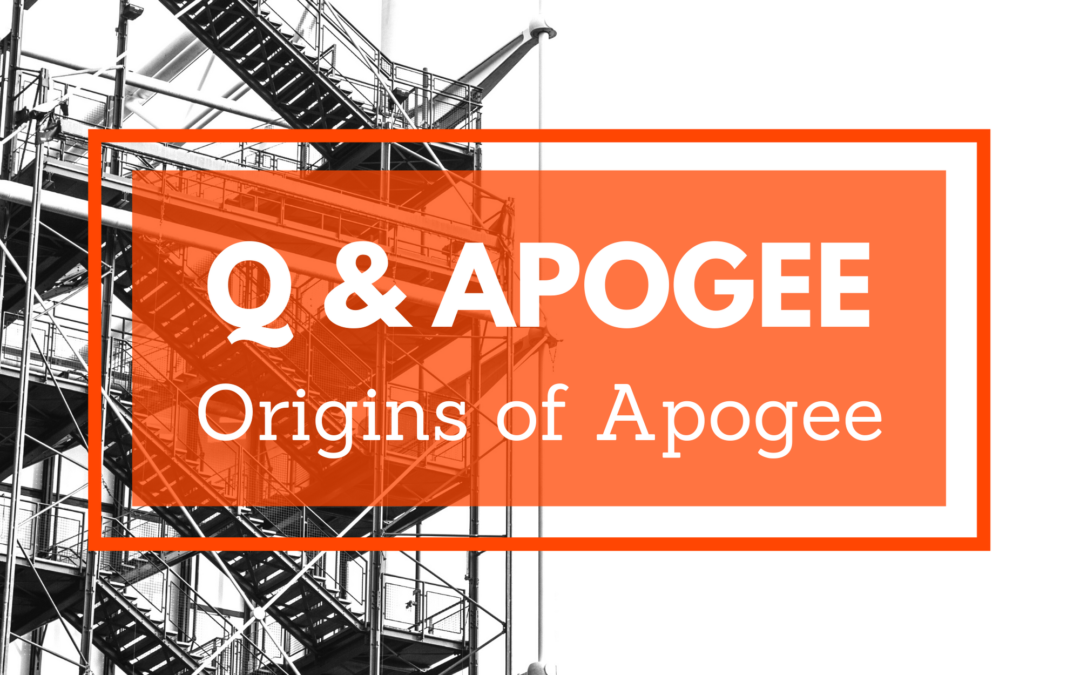Last week, we sat down with Metonic CEO, Bob Dean and Apogee President, Kassie Inness, to discuss the origins of our company, how we’ve evolved and what the future looks like. Below is a summary of our conversation, and answers to some of our most asked questions about the development!
Q: How did the idea of Apogee come about and when did the company launch?
A: [Bob] Apogee is really quickly become a development company that’s mostly thought of as building new apartment communities, but its origin was to be a place of innovation. When Kassie first started working for Metonic, she came aboard because we needed to redesign some commercial spaces, and we recognized a need to do the same thing in some of our multifamily spaces. Apogee was originally built to be a place where we tried new design ideas, new amenity spaces, etc.
[Kassie] The company officially launched in January of 2019. There were talks of the company back in 2018 but we were officially an LLC in January of the next year.
Q: How would you say that Metonic and Apogee work together? How are they similar and how are they different?
A: [Kassie] Metonic and Apogee are sister companies with common ownership. Metonic is the real estate investment sponsor who manages the commercial and residential portfolio and Apogee is the mechanism to innovate, improve, value add, and new develop multifamily real estate. As Bob mentioned, we had our hand in commercial in the beginning and we are available to help innovate amenity spaces as needed, but over the last two years, we have focused heavily on multifamily new construction development. In 2018, Metonic started a new development project called Ravello 192, that was 118 apartment homes. Since that first development project, we have developed or are in the process of developing 472 apartment homes with an additional 175 in our pipeline. We have ramped up very quickly on the development side of things; that being said, we would still consider the CapEx value add, marketing/branding, interior design as our bread and butter. We have a group of highly specialized professionals who can oversee a CapEx project; as an example of that, we just acquired the Triangle Apartments in midtown Omaha. This is an opportunity to reenergize the midtown area. We’re creating new signage, new innovative amenity spaces, exterior improvements, etc.
[Bob] Customers should know that Apogee is really central to what we do. They’re driven toward the consumer experience and what will make someone who lives and/or works in our space have a better experience than what our peers can offer. In regards to how Metonic and Apogee work together, Metonic is more focused on compliance, rules, taxes, insurance, mortgages, debt; protecting investments and communicating with investors. Apogee is speaking to the consumer side; that is what is unique about having Apogee on board. We protect the investments, but also give the consumers an experience that is better than what they may get somewhere else.
[Kassie] A lot of our competitors will have to utilize third-party services, such as marketing/branding firms, project management firms, interior design companies, etc. and pay 3x the amount of fees that Metonic pays Apogee because we are in the same office and are so collaborative. We have a lean team with highly specialized individuals. We’re able to optimize and be more efficient in rolling out these value-add and CapEx plans.
Q: What do you see as the biggest advantage of Apogee’s involvement from an investor standpoint?
A: [Bob] The speed of putting the dollars to work. When an investor’s dollars go in, we want to put that to work as fast as we can in order to drive a meaningful return back to them. When we were discussing creating Apogee, one of the things that we recognized was a need to be quicker and more nimble.
Q: What is the long term goal for Apogee? How has that evolved from the company’s inception?
A: [Kassie] Originally, Apogee was looking to expand into a third-party market, meaning we were going to engage clients outside of Metonic and grow the company that way. While we haven’t fully moved away from the idea of third-party work, I think that has evolved over the last few years as we have seen an avenue for new construction development and the need in housing demand that Omaha and surrounding submarkets have. Our goal over the next three years is to 3x our ground up developments. We have a great pipeline ahead of us and are always looking for new ground in great locations not only in Omaha but outside of Omaha as well; Lincoln, potentially expanding into Colorado, currently looking at ground in California. Our goals of growth are pretty extensive, but we can achieve that with the great group of individuals that is employed at both Metonic and Apogee.
[Bob] Something I’m really proud of is Apogee’s ability to do a diverse grouping of developments. We’ve proven to be very effective at developing affordable housing and we will continue to do that, but I think Apogee is going to be central to everything that we do. A lot of times you will see companies like Apogee but they only do conventional build-up or only tax credit apartments, etc. We built a company that can do any number of those things and being actively involved in existing deals and making them into something that is different utilizing expertise of the team we created.
Check out our podcast (linked below) for more information about the origins of Apogee!








